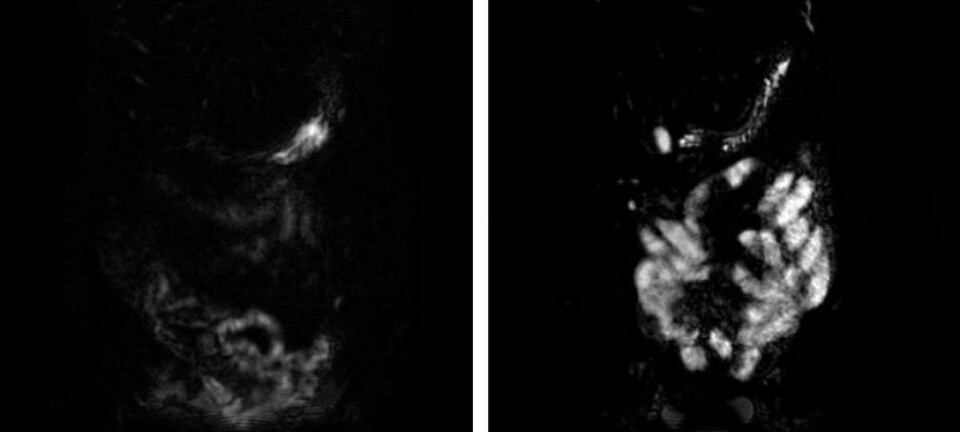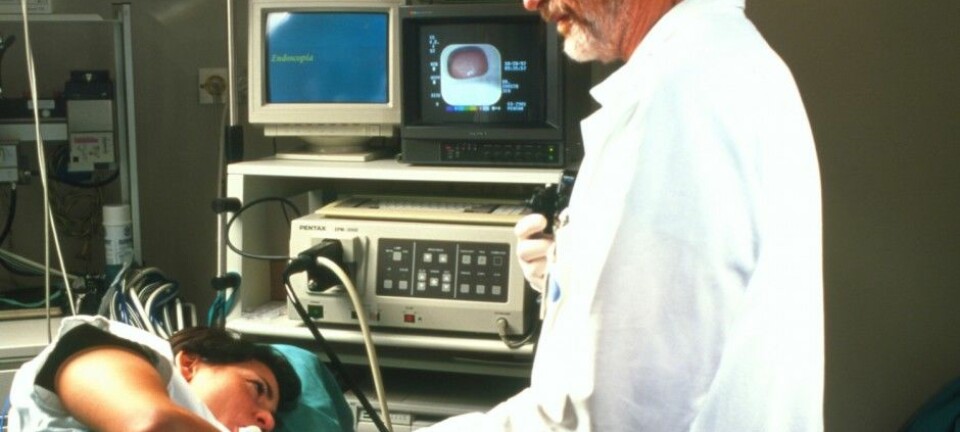
New treatment for irritable bowel syndrome?
A new study might bring hope of treatment for persons plagued by irritable bowel syndrome.
Irritable bowel syndrome (IBS) is not a life-threatening medical problem, but it is bothersome. Researchers at Örebro University in Sweden have been granted nearly $300,000 to study whether butyric acid can be used in the treatment of IBS.
“This could have a great impact, because so far there is no effective treatment of the syndrome,” says Researcher Rebecca Wall in a press release.
Ten percent of the population
IBS is a general term for many intestinal afflictions. The symptoms include stomach pains and discomfort, bloated intestines or flatulence and constipation and diarrhoea. Researchers estimate that about one in ten Norwegians are troubled by IBS. Adults and children alike can suffer from it, but women are the most susceptible.
Despite the multitudes of sufferers, medical researchers know little about the cause. Some think persons with IBS are incapable of metabolizing a certain type of carbohydrate and sufferers can be asked to stick to the so-called FODMAP diet.
The FODMAP diet (Fermentable Oligo-, Di- and Monosaccharides and Polyols) involves dropping foods containing fermentable carbohydrates.
This is one of the treatment methods that have helped reduce IBS symptoms, but it does not work for everyone.
Raising levels of butyric acid
It has been seen that patients with IBS have reduced levels of gut bacteria that produce butyric acid. This is a fatty acid that various bacteria types produce when metabolizing certain dietary fibres. As some doctors consider higher concentrations of butyric acid in the intestines to be helpful, perhaps a lack of the bacteria which produce it could be a cause of IBS.
Butyric acid can help curb inflammations and might boost intestinal bacterial functions. Bowels with impaired bacterial function are more prone to admitting toxic substances that can be absorbed by the intestinal mucus membrane and pass further into the body. This can irritate and infect the intestines, as often seen in IBS patients.
Researcher Rebecca Wall has now been granted NOK 2.4 million (about $290,000) from the Swedish Research Council to study how butyric acid affects the intestines and whether it can be used in treating IBS. Tests have previously been done with animals but Wall expects to be the first one to follow up the lead by exposing blood samples and intestinal tissue samples to the acid. Samples will be taken from healthy persons as well as ones with IBS.
Too good to be true?
In 2016, Per Farup, a professor at the Norwegian University of Science and Technology (NTNU), and his colleagues studied faeces samples from persons with and without IBS. They found that the IBS patients exhibited lower levels of butyric acid and higher levels of propionic acid.
“Research has been published about the beneficial effects of butyric acid on the intestines and propionic has been seen to have negative health effects. So the findings in the study were not unexpected,” says Farup.
The NTNU study showed that levels of the two acids might be used as a diagnostic marker for IBS. Farup and his colleagues have plans to pursue this prospective tool.
Farup says it sounds a trifle too good to be true for butyric acid to function as a “cure” for IBS. But he is keen to see the results of the future study.
“I am intrigued by this research project approach and the results will be appraised with a great deal of interest,” says Farup.
Reference:
Per G. Farup, Knut Rudi, Knut Hestad. Faecal short-chain fatty acids - a diagnostic biomarker for irritable bowel syndrome? BMC Gastroenterology. DOI: 10.1186/s12876-016-0446-z. April 2016.
-------------------------------------
Read the Norwegian version of this article at forskning.no
Translated by: Glenn Ostling






